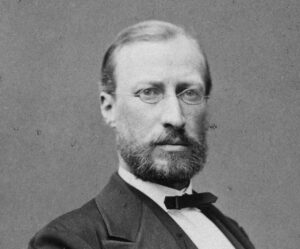The Bond Lab at the University of California, Davis and the Forthman Lab at the California Department of Food and Agriculture welcome applications for a postdoctoral researcher to focus on a collaborative phylogenomic project of the megadiverse plant bugs (Miridae).
PROJECT POSITION:
The successful candidate will work with a multi-institutional team of researchers, involving the Bond and Forthman Labs, as well as the Weirauch Lab at the University of California, Riverside (lead project institution). The candidate will work closely with Ph.D. students and undergraduate interns to complete projects sponsored by a recent NSF award. Opportunities to develop complementary research questions and proposals with the project team will be encouraged. Considerable field collecting within the western US and in South Africa will take place throughout the position. The candidate will also participate in scientific outreach programs at CDFA and UCD to promote scientific discovery, agriculture, and biodiversity for public audiences of all ages. Note that this position will primarily take place at the California Department of Food and Agriculture Plant Pest Diagnostics Center (PPDC) in Sacramento, California. We are seeking a candidate with previous leadership and collaborative experiences, excellent communication and organization skills, a positive attitude, and motivation for learning new skills and knowledge. Prior research experience in systematics, evolution, phylogenetics, biodiversity, and/or entomology is also important.
PROJECT DESCRIPTION:
This collaborative project will focus on the evolution of Miridae, a megadiverse and understudied insect family known as plant bugs. While most plant bugs are phytophagous with a limited host plant range, the group also includes predatory, mycetophagous, and zoophytophagous lineages, making this group economically important as crop pests and beneficial predatory insects. Plant bugs are extremely speciose in Mediterranean-type regions, including the California Floristic Province (CA-FP) biodiversity hotspot. Despite a substantial biodiversity dataset generated for plant bugs through past NSF-funding, its current utility is hindered by the absence of robustly supported phylogenetic hypotheses, limiting exploration of biogeographic history and host plant evolution. In this project, we will:
- Generate a worldwide phylogeny of plant bugs based on ultraconserved element (UCE) data to reconstruct robust tribal and subtribal-level relationships and investigate the temporal and diet evolution of the group.
- Investigate the biogeographic history and host plant evolution of Nearctic Miridae, focusing on 12 well-documented clades, and determine the origin of taxa in the CA-FP.
- Test if phylogenetic diversity of Miridae in the CA-FP shows similar patterns to those documented for plants and vertebrates.
The postdoc will lead sequence capture and processing for all three aims, and phylogenomic analyses including manuscript preparation for Aims 1 and 2 (in part). Postdoc mentoring will balance research, publications, presentations, grantsmanship, teaching, and outreach. The successful candidate will gain field experience, expertise in mirid systematics, including identifications, NGS and bioinformatics skills, and expertise with phylogenetic and downstream analyses (e.g., divergence dating, biogeography, phylogenetic diversity). The candidate will be involved in teaching a course-based undergraduate research experience class and a True Bug Short Course, as well as co-mentor undergraduate students.
QUALIFICATIONS:
- Hold a Ph.D. in evolutionary biology, entomology, or a related field
- Have demonstrated background in systematics with preference for insect systematics
- Have demonstrated skills in phylogenomic approaches from wet-lab procedures to bioinformatics
- Show skills in data analysis and scientific writing
- Show strong leadership qualities and excellent communication skills
- Work well in a team setting across multiple laboratories
- Have experience with mentoring students and interest in outreach activities
Preferred (not required) qualifications:
- Experience generating and analyzing UCE datasets
- Experience conducting field work
For additional details regarding the project, application materials, and application submission, see https://recruit.ucdavis.edu/JPF06359.


